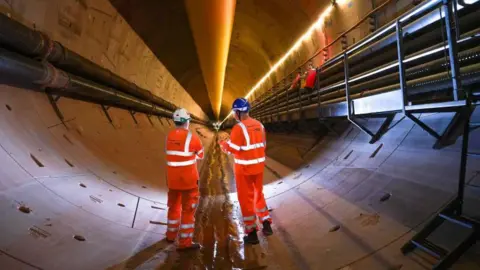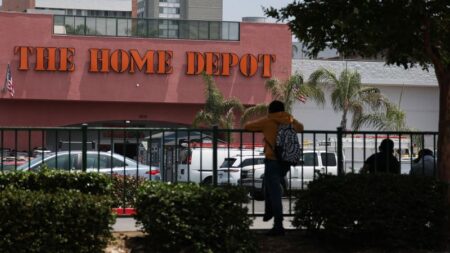The highly anticipated opening of the HS2 high-speed rail line, initially set for 2033, is now facing delays that extend beyond this target date. This disappointing news comes as Transport Secretary Heidi Alexander prepares to address Parliament, where she will reveal that there is “no reasonable way to deliver” the railway line on time and within budget. Although she is expected to provide insights from two critical reviews into HS2’s progress, details concerning the extent of the delay remain unclear.
HS2, which stands for High Speed 2, was designed to transform rail travel in the UK by connecting London with major cities in the Midlands and Northern England. Its promise was to significantly reduce journey times and expand railway capacity; however, the project has been beleaguered by numerous challenges, including escalating costs and administrative setbacks. Alexander’s upcoming statement aims to push forward a reformative agenda, drawing a “line in the sand” to reset expectations regarding the delivery of major infrastructure projects.
The handling of the HS2 project has faced considerable scrutiny. One of the reviews, described by sources as a “litany of failures,” has identified mismanagement and poor oversight as primary contributors to the staggering cost overruns. Since its inception in 2012, the overall cost of HS2 has ballooned by approximately £37 billion, leading to questions about the efficiency and accountability of successive Conservative governments responsible for its oversight.
The original plans envisioned a high-speed rail network that would improve connections between vital areas in the UK. However, the scope of HS2 has narrowed considerably over the years. The focus has shifted, with high-speed links planned from London to Birmingham, and the previously intended connection from Birmingham to Manchester scuttled in 2023 due to soaring costs. The then-Chancellor, Jeremy Hunt, noted that expenditures had become “utterly out of control,” further complicating the project’s viability. Additionally, an eastern segment that was meant to connect Birmingham with Leeds was also axed two years prior to these developments.
As part of her address, Alexander will unveil two separate reports focusing on HS2’s management and project execution. One of these reports is being prepared by James Stewart, the former chief executive of Crossrail. His commission aimed at evaluating HS2’s overall oversight, determining what has gone awry thus far, and identifying lessons for future infrastructure initiatives. The second report, compiled by Mark Wild, the current chief executive of HS2, focuses specifically on assessing the construction phase linking London and Birmingham.
These reviews come at a time when financial estimates regarding the project’s completion remain uncertain. Previously, the Department for Transport had indicated that the remaining cost of HS2 could range from £45 billion to £54 billion, while HS2 management itself has suggested that the figure may reach as high as £57 billion. In stark contrast, initial estimates released in 2010 predicted a total cost of £33 billion and an opening year of 2026.
In a further attempt to mitigate leadership challenges, Alexander is also set to announce the appointment of Mike Brown, the former commissioner of Transport for London, to chair HS2 Ltd. This appointment is seen as part of a broader strategy to inject fresh leadership and expertise into the programme, although the success of these measures remains to be seen against the backdrop of ongoing delays and budgetary constraints.
In summary, the high-speed rail project, once marked by ambitious goals, now finds itself mired in delays and budget struggles. Transportation authorities are faced with the daunting challenge of not only delivering on past promises but also ensuring that future infrastructure projects are executed with greater efficiency and accountability. With two critical reports illustrating the gravity of the situation, the government must work diligently to avoid further setbacks that could hinder the aspirations of an efficient high-speed rail network in the UK.










